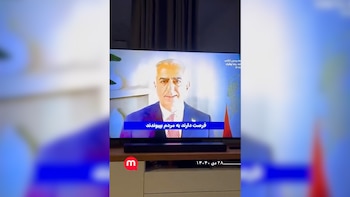The International Paralympic Committee (IPC) – pursuant to an agreed decision – suspended Bahraini Para athletics athlete Rooba AlOmari for 12 months for committing an anti-doping rule violation.
The Rio 2016 Paralympian, who competes in the F55 class, was suspended for a failure to submit to sample collection.
AlOmari competed at the 11th Fazza International Athletics Championships in Dubai in February 2019, where she was selected for doping control after she came second in the women’s javelin competition on 26 February. AlOmari failed to provide a urine sample after being notified of her selection for testing by a Doping Control Officer.
Despite being willing to provide a sample, it transpired that she was unable to provide a sample without the use of certain equipment, which she did not have on her person, as required by the terms of the International Standard for Testing and Investigations of the World Anti-Doping Code (WADA ISTI). The period of ineligibility imposed takes into account that, whilst AlOmari's failure to submit to sample collection was not intentional, she admits it was negligent (albeit not significantly negligent).
As a result of a violation being admitted, AlOmari was considered ineligible for competition for a period of 12 months from 2 May 2019 to 1 May 2020. All her results obtained during the competition on 26 February 2019 and during her period of ineligibility have been disqualified, including forfeiture of any medals, points, records and prizes she won. This includes all the results she achieved at the Tunis 2019 World Para Athletics Grand Prix in June 2019. The athlete also agreed to participate in an anti-doping education course.
James Sclater, Anti-Doping Director at the IPC, said: "The IPC would strongly remind all athletes who require urine collection or drainage systems in order to provide a urine sample for Sample Collection that, according to the WADA ISTI, it is the athlete’s own responsibility to have the necessary equipment for testing.
"Athletes who are unsure whether they require a urine collection or drainage system in order to provide a urine sample for doping control purposes should speak to their physician and, if required, work with their physician to identify a suitable method to enable the athlete to provide a urine sample. This may include athletes who typically use incontinence pads."
As a signatory of the World Anti-Doping Code (WADC), the IPC remains committed to a doping-free sporting environment at all levels. The IPC, together with the International Federations and the National Paralympic Committees, established the IPC Anti-Doping Code to prevent doping in sport for Paralympic athletes, in the spirit of fair play. The IPC Anti-Doping Code is in conformity with the general principles of the WADC.
25 Years at #1: Your best source of news about the Olympics is www.aroundtherings.com, for subscribers only
Últimas Noticias
Sinner-Alcaraz, the duel that came to succeed the three phenomenons
Beyond the final result, Roland Garros left the feeling that the Italian and the Spaniard will shape the great duel that came to help us through the duel for the end of the Federer-Nadal-Djokovic era.
Table tennis: Brazil’s Bruna Costa Alexandre will be Olympic and Paralympic in Paris 2024
She is the third in her sport and the seventh athlete to achieve it in the same edition; in Santiago 2023 she was the first athlete with disabilities to compete at the Pan American level and won a medal.

Rugby 7s: the best player of 2023 would only play the medal match in Paris
Argentinian Rodrigo Isgró received a five-game suspension for an indiscipline in the circuit’s decisive clash that would exclude him until the final or the bronze match; the Federation will seek to make the appeal successful.

Rhonex Kipruto, owner of the world record for the 10000 meters on the road, was suspended for six years
The Kenyan received the maximum sanction for irregularities in his biological passport and the Court considered that he was part of a system of “deliberate and sophisticated doping” to improve his performance. He will lose his record and the bronze medal at the Doha World Cup.

Katie Ledecky spoke about doping Chinese swimmers: “It’s difficult to go to Paris knowing that we’re going to compete with some of these athletes”
The American, a seven-time Olympic champion, referred to the case of the 23 positive controls before the Tokyo Games that were announced a few weeks ago and shook the swimming world. “I think our faith in some of the systems is at an all-time low,” he said.




